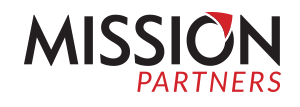How to Become Fierce in Your Focus
by Carrie Fox
“Be steady and well-ordered in your life so that you can be fierce and original in your work.”
French novelist and author of Madame Bovary Gustave Flaubert wrote this line[1] in an 1825 correspondence to Gertrude Tennant. Flaubert was known for his style and aesthetics—and his attention to the fine detail shows up often in his life’s work.
This notion of orderly focus has been on my mind in recent weeks as we’ve been guiding several clients through a range of organizational transitions. In each project I’m reminded that focus is hard for many organizations to achieve—especially when everything feels to be changing around them.
Whether shifting directions in a strategic plan, or revisiting the words used to define your organization’s core beliefs, no greatness can come from a shaky or unorderly process. But with a little muscle memory, focusing your organization’s words, actions, and future can be much more manageable.
So, this week’s blog is devoted to some of my favorite tips for keeping order, even in times of transition:
- On focusing your words: The words we use to define our mission, vision and everyday value have a major impact in getting someone to understand what we’re saying. Spend less time talking around an issue or peppering your language with too much technical-speak and force yourself to get to the heart of what really matters. Then, ask a handful of people one step removed from your daily work how they would describe your product, service, or issue. You’ll likely find those answers contain some of the most authentic elements of your mission: the kinds of words that have been right in front of you, but got buried in complexity somewhere along the way. Also, pay attention to the vehicles you’re using to distribute your messages. By simplifying or reducing the number of communications tools you’re using, you can focus more intently on how well you’re using them and your messages will have a better chance of sticking.
- On focusing your actions: If you’re in the camp of always wondering “Why are we doing this?” and the answer isn’t easily produced, it’s probably time for a good assessment of your organizational priorities. Are organizational goals clear, and does each team have sub-goals and objectives that line up with the big picture? Do individuals, especially in more junior positions, understand how their daily activities connect back to the bigger picture? If you—or they— can’t answer those questions, your organization is likely losing a lot of time and efficiency. Focus first on ensuring that the entire team understands this year’s priorities (before you dive right into this week’s priorities) and you’ll see your organizational focus skyrocket.
- On focusing on the future: The assumption most of us make is that if we have well-ordered and organized days, we’re likely to be productive. But we’ve found that in routine, the power of originality can be lost in the mundane. Try introducing short, unexpected and creative activities into your work week that intentionally change the routine—a lunchtime walk through a new part of town, a mid-day drawing or coloring session, an afternoon exercise class— anything that can clear your mind and give you a fresh perspective on the day’s work. We’ve found that it works every time to restore a sense of focus that translates well into fresh thinking.
Achieving the kind of steadiness that Flaubert referenced is not easy, but creating a path to fierce originality is well worth it. While strategic direction will likely be guided from the top, everyone can play a role in advancing an organization’s future. And with a renewed sense of focus, you’ll feel confident knowing that each task you take on today is getting you closer to that ultimate goal.





 Check out our new
Check out our new